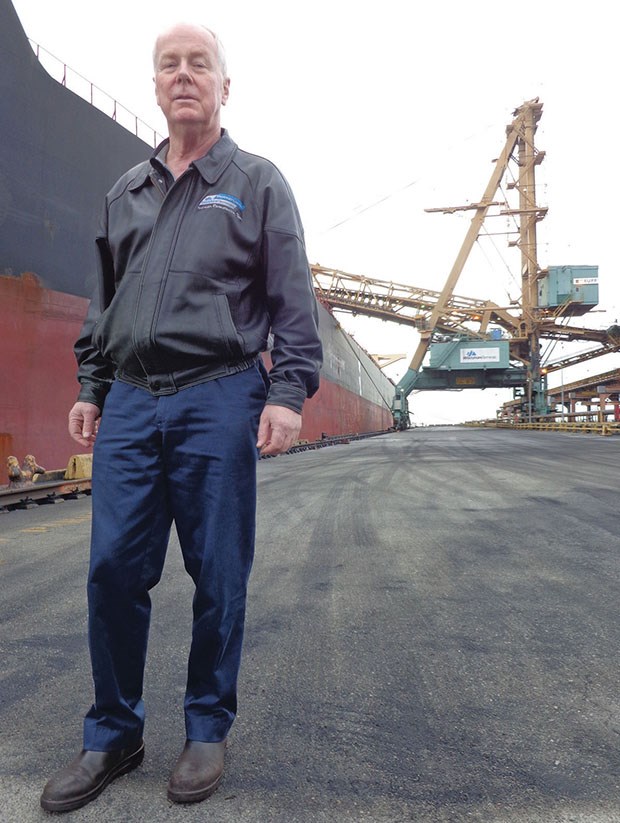Westshore Terminals vice-president Denis Horgan took on a new role to begin 2015 - retiree.
After nearly 40 years in the coal industry, the last 26 of which were spent at Westshore Terminals, Horgan called it a career as of Dec. 31.
"I just felt that probably 10 years was enough to run the company," he said, adding it was time to let the next generation take over.
"We focused very heavily in the last five years on succession planning," he said. Horgan immigrated to Canada from Ireland in January 1974. A chartered accountant by trade, he joined Kaiser Resources in 1975. The company operated several mines in the Sparwood area.
"That's where all the coal mines are," Horgan said.
After 13 years with Kaiser, Horgan, 66, made the move to Westshore Terminals in 1988.
"I was the best thing I ever did," he said.
Horgan held various positions over the years, taking over as vice-president and general manager in 2004.
During his 26 years with the company, and his 40 years in the coal industry, Horgan has seen many changes.
In 1975, Westshore Terminals was shipping 8.3 million tonnes annually, a figure that has nearly quadrupled today.
The company has also seen its customer base change over the years. When it opened in 1970, 100 per cent of the coal was shipped to Japan, but today, only about 20 per cent goes there. Korea is currently Westshore's single biggest customer and 80 per cent of the coal shipped through the terminal goes to Asia.
The industry has certainly seen its ups and downs over the years.
Horgan said Kaiser Resources was borderline bankrupt in 1973, but by the time he joined in 1975, the price of coal was up to $50 a tonne. The industry continued to profit into the 1980s, until the recession hit. Horgan said there was a 20-year span, from the mid-1980s until about 2004, which saw the industry endure hard times.
"Nobody made a lot of money in that time," he said, adding people have been citing the end of the industry for decades but it continues to rebound.
"A lot of people have called coal a sunset industry for 30, 40 years... The coal industry is far from dead - it's been dramatically increasing in recent years."
The industry accounts for 26,000 jobs in the province, he said, and generates $3.2 billion in economic activity.
While there are many who are quick to criticize the coal industry, citing health and environmental concerns from mining and shipping of coal and the associated dust, Horgan maintains that with more stringent environmental regulations and changes in protocols within the industry, coal has become one of the most environmentally responsible industries.
"I think it's a very responsible and very safe industry," he said, adding that both Westshore Terminals and the rail companies have increased their dust suppression systems in recent years.
Coal trains are now subject to two dust-suppression sprays en route to the terminal and Westshore has upgraded its dust suppression equipment as well as built two mobile air-monitoring stations.
"A lot of work has been done to try and allay people's concerns," he said. "We'd like to think things have gotten better."
Horgan, who is also a member of the board of Reach Child and Youth Development Society and Tsawwassen First Nation Economic Development Corporation, said he plans to travel in his retirement, including a trip to Wales for the World Cup of Rugby, as well as stay active by skiing, hiking, cycling and playing golf.



